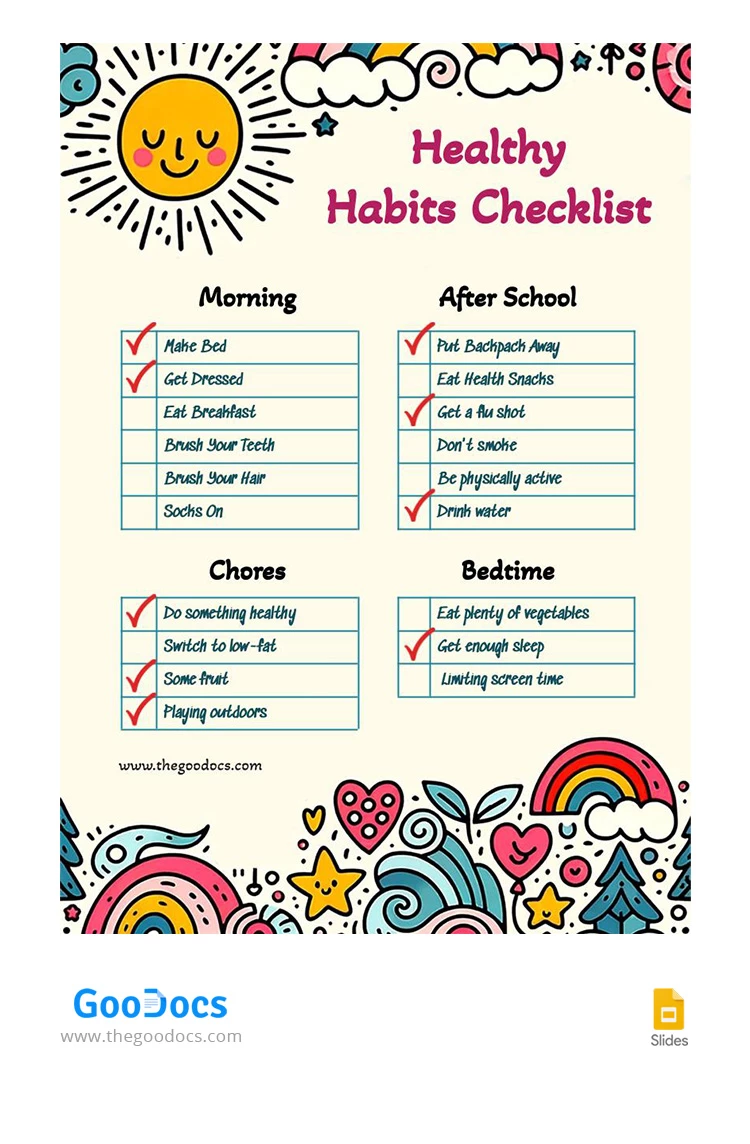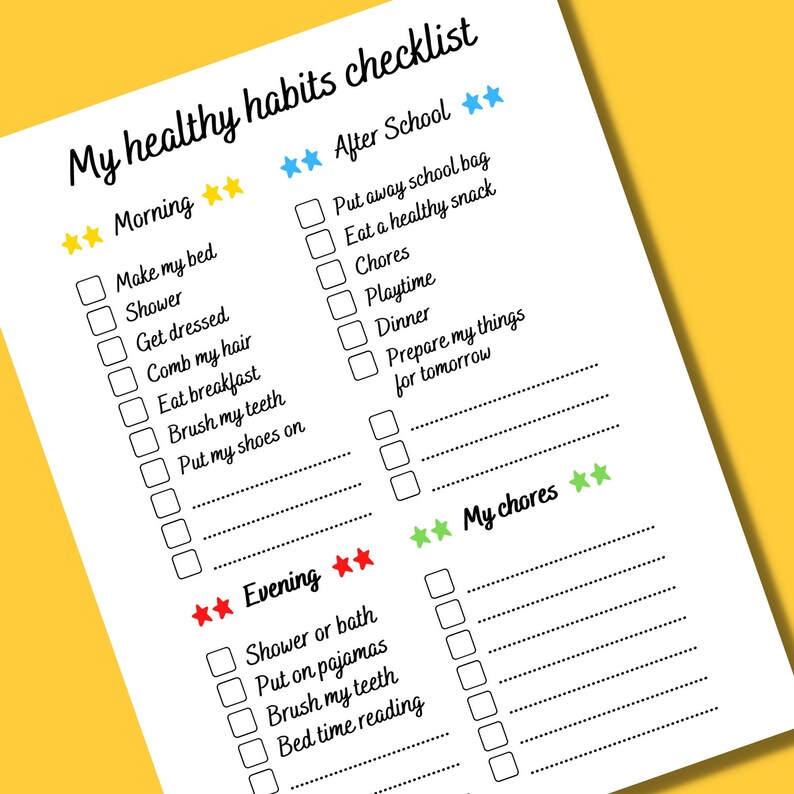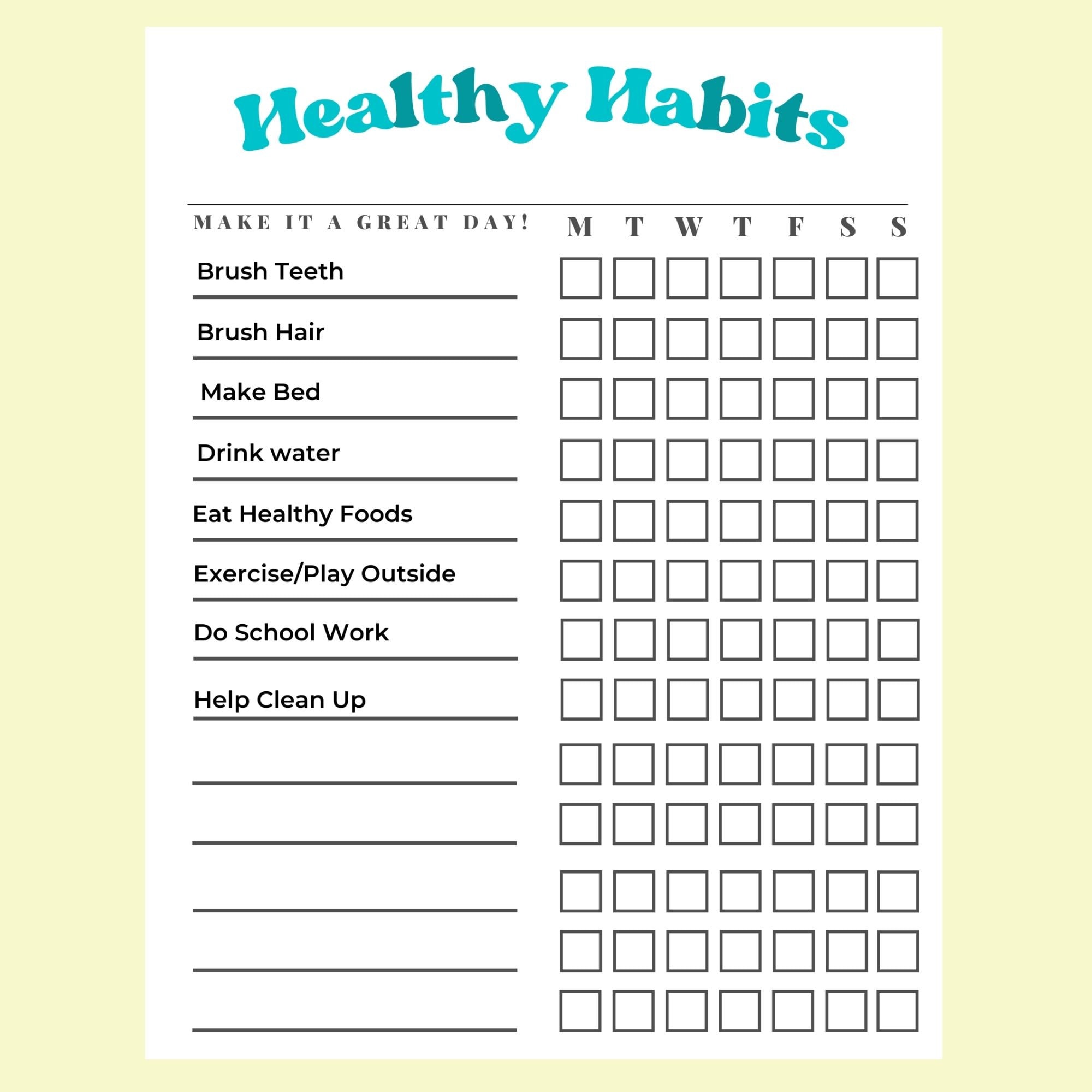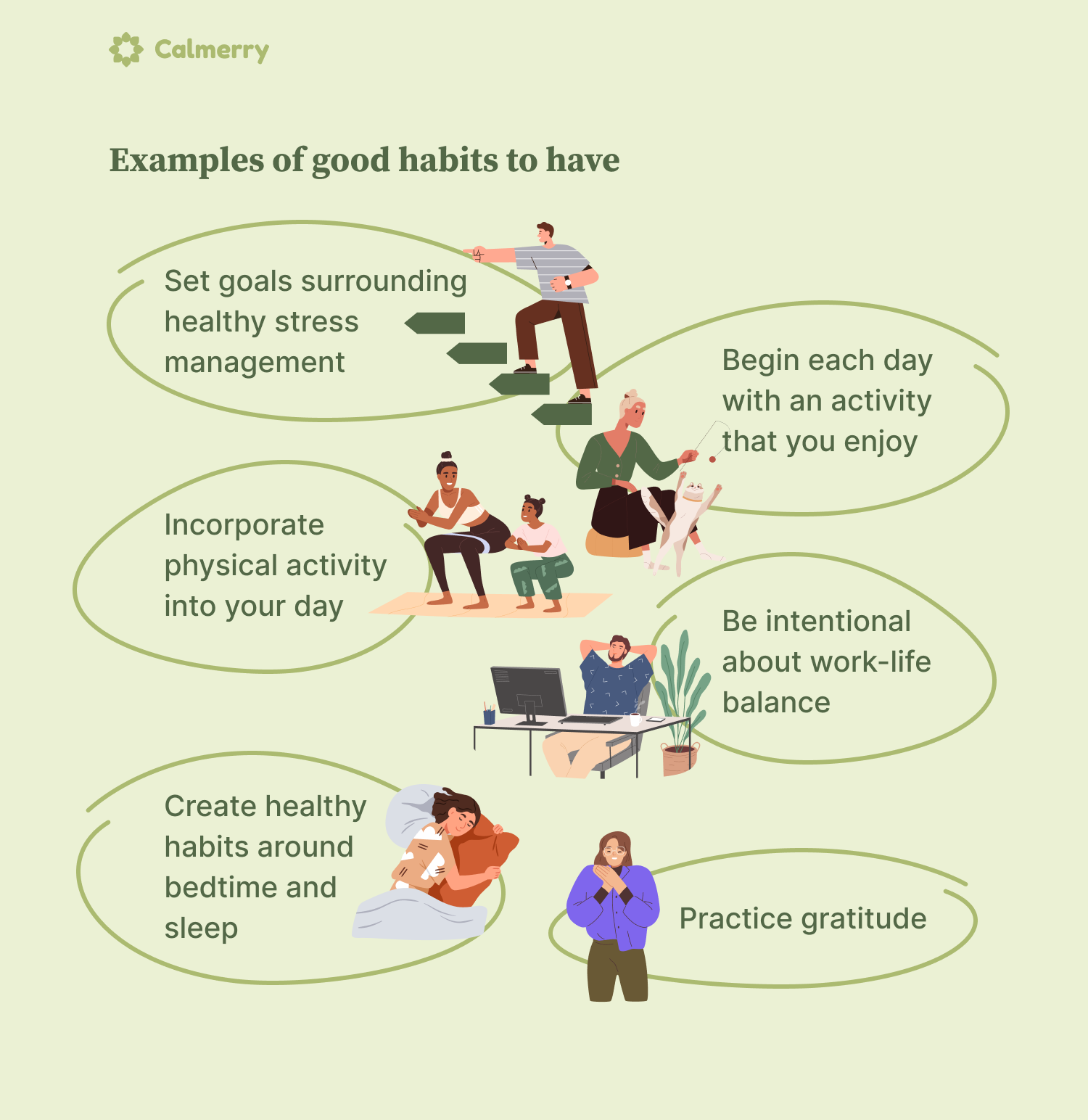“The Ultimate Healthy Habits Checklist: Your Roadmap to a Better You
On this special occasion, we are delighted to explore the fascinating topic of The Ultimate Healthy Habits Checklist: Your Roadmap to a Better You. Let’s weave together engaging insights and offer a fresh perspective to our readers.
About Video The Ultimate Healthy Habits Checklist: Your Roadmap to a Better You
The Ultimate Healthy Habits Checklist: Your Roadmap to a Better You

In a world that often feels like it’s moving at warp speed, it’s easy to let our health and well-being take a backseat. We become so engrossed in work, family, and social obligations that we forget to prioritize the very foundation upon which everything else is built: our health. That’s where a healthy habits checklist comes in. It’s not just a list; it’s a roadmap to a better, healthier, and happier you.
Why a Healthy Habits Checklist?
Think of a healthy habits checklist as your personal GPS for well-being. It provides a structured way to:
-
Prioritize Your Health: In the chaos of daily life, it’s easy to forget the things that matter most. A checklist puts your health front and center.
-
Track Your Progress: Seeing your accomplishments, no matter how small, can be incredibly motivating.
-
Build Consistency: Healthy habits are most effective when practiced consistently. A checklist helps you stay on track.
-
Identify Areas for Improvement: It allows you to pinpoint where you’re doing well and where you need to focus your energy.

-
Boost Your Overall Well-being: By addressing various aspects of your health, you’ll experience a holistic improvement in your physical, mental, and emotional well-being.


The Ultimate Healthy Habits Checklist
This checklist is designed to be comprehensive and adaptable to your individual needs and preferences. Feel free to customize it to fit your lifestyle.
1. Nourishment and Hydration:
- ☐ Start Your Day with Water: Drink a glass of water first thing in the morning to rehydrate your body after sleep.
- ☐ Eat a Balanced Breakfast: Fuel your body with a mix of protein, complex carbohydrates, and healthy fats. Examples include oatmeal with berries and nuts, Greek yogurt with fruit, or eggs with whole-wheat toast.
- ☐ Consume 5 Servings of Fruits and Vegetables Daily: Aim for a variety of colors to ensure you’re getting a wide range of nutrients.
- ☐ Limit Processed Foods, Sugary Drinks, and Excessive Salt: These can contribute to various health problems.
- ☐ Practice Mindful Eating: Pay attention to your hunger and fullness cues, and savor each bite.
- ☐ Stay Hydrated Throughout the Day: Carry a water bottle and sip on it regularly. Aim for at least 8 glasses of water per day.
2. Physical Activity:
- ☐ Engage in at Least 30 Minutes of Moderate-Intensity Exercise Most Days of the Week: This could be brisk walking, jogging, swimming, cycling, or dancing.
- ☐ Incorporate Strength Training Exercises at Least Twice a Week: Focus on major muscle groups like legs, back, chest, and arms.
- ☐ Stretch Regularly: Stretching improves flexibility, reduces muscle tension, and prevents injuries.
- ☐ Take the Stairs Instead of the Elevator: A simple way to add more physical activity to your day.
- ☐ Walk or Bike for Short Errands: Opt for active transportation whenever possible.
- ☐ Find an Activity You Enjoy: Exercise shouldn’t feel like a chore. Choose activities that you find fun and engaging.
3. Sleep and Rest:
- ☐ Aim for 7-9 Hours of Quality Sleep Each Night: Sleep is crucial for physical and mental restoration.
- ☐ Establish a Regular Sleep Schedule: Go to bed and wake up at the same time each day, even on weekends.
- ☐ Create a Relaxing Bedtime Routine: This could include taking a warm bath, reading a book, or listening to calming music.
- ☐ Optimize Your Sleep Environment: Make sure your bedroom is dark, quiet, and cool.
- ☐ Avoid Screen Time Before Bed: The blue light emitted from electronic devices can interfere with sleep.
- ☐ Limit Caffeine and Alcohol Consumption Before Bed: These substances can disrupt your sleep patterns.
4. Mental and Emotional Well-being:
- ☐ Practice Mindfulness or Meditation: Even a few minutes of daily mindfulness can reduce stress and improve focus.
- ☐ Engage in Activities You Enjoy: Make time for hobbies and activities that bring you joy and relaxation.
- ☐ Connect with Loved Ones: Nurture your relationships with family and friends.
- ☐ Practice Gratitude: Take time to appreciate the good things in your life.
- ☐ Learn Something New: Keep your mind active and engaged by learning new skills or information.
- ☐ Spend Time in Nature: Nature has a calming and restorative effect on the mind.
- ☐ Seek Professional Help When Needed: Don’t hesitate to reach out to a therapist or counselor if you’re struggling with your mental health.
5. Hygiene and Self-Care:
- ☐ Practice Good Oral Hygiene: Brush your teeth twice a day and floss daily.
- ☐ Wash Your Hands Regularly: Especially before meals and after using the restroom.
- ☐ Take Care of Your Skin: Use sunscreen, moisturize regularly, and avoid harsh chemicals.
- ☐ Schedule Regular Check-ups with Your Doctor and Dentist: Preventive care is essential for maintaining good health.
- ☐ Take Breaks Throughout the Day: Step away from your work or other activities to rest and recharge.
- ☐ Pamper Yourself: Treat yourself to a massage, a spa day, or any other activity that makes you feel good.
6. Habits to Limit or Avoid:
- ☐ Smoking: Smoking is harmful to your health and should be avoided.
- ☐ Excessive Alcohol Consumption: Limit your alcohol intake to moderate levels.
- ☐ Prolonged Sitting: Take breaks to stand up and move around every 30 minutes.
- ☐ Negative Self-Talk: Replace negative thoughts with positive affirmations.
- ☐ Procrastination: Break down tasks into smaller, more manageable steps.
- ☐ Excessive Screen Time: Set limits on your screen time and take breaks to rest your eyes.
Making the Checklist Work for You
Here’s how to make the most of your healthy habits checklist:
-
Personalize It: Don’t feel like you have to follow the checklist exactly as it is. Adapt it to your individual needs, preferences, and goals.
-
Start Small: Don’t try to change everything at once. Focus on incorporating one or two new habits at a time.
-
Be Consistent: Consistency is key to building healthy habits. Try to stick to your checklist as much as possible.
-
Track Your Progress: Use a journal, a calendar, or a habit-tracking app to monitor your progress.
-
Celebrate Your Successes: Acknowledge and reward yourself for achieving your goals.
-
Be Patient: Building healthy habits takes time and effort. Don’t get discouraged if you slip up occasionally. Just get back on track as soon as possible.
-
Seek Support: Enlist the help of friends, family, or a health coach to support you on your journey.
The Long-Term Benefits of Healthy Habits
Investing in healthy habits today can pay off in countless ways in the future:
-
Increased Energy Levels: You’ll feel more energetic and productive throughout the day.
-
Improved Mood: Healthy habits can boost your mood and reduce feelings of stress and anxiety.
-
Stronger Immune System: You’ll be less likely to get sick.
-
Reduced Risk of Chronic Diseases: Healthy habits can help prevent heart disease, diabetes, cancer, and other chronic conditions.
-
Improved Cognitive Function: You’ll have better memory, focus, and concentration.
-
Increased Longevity: You’ll live a longer, healthier, and more fulfilling life.
Conclusion
A healthy habits checklist is a powerful tool for taking control of your health and well-being. By incorporating these habits into your daily routine, you can transform your life and create a healthier, happier, and more fulfilling future. Remember, it’s not about perfection; it’s about progress. Start small, be consistent, and celebrate your successes along the way. Your journey to a better you starts now!

